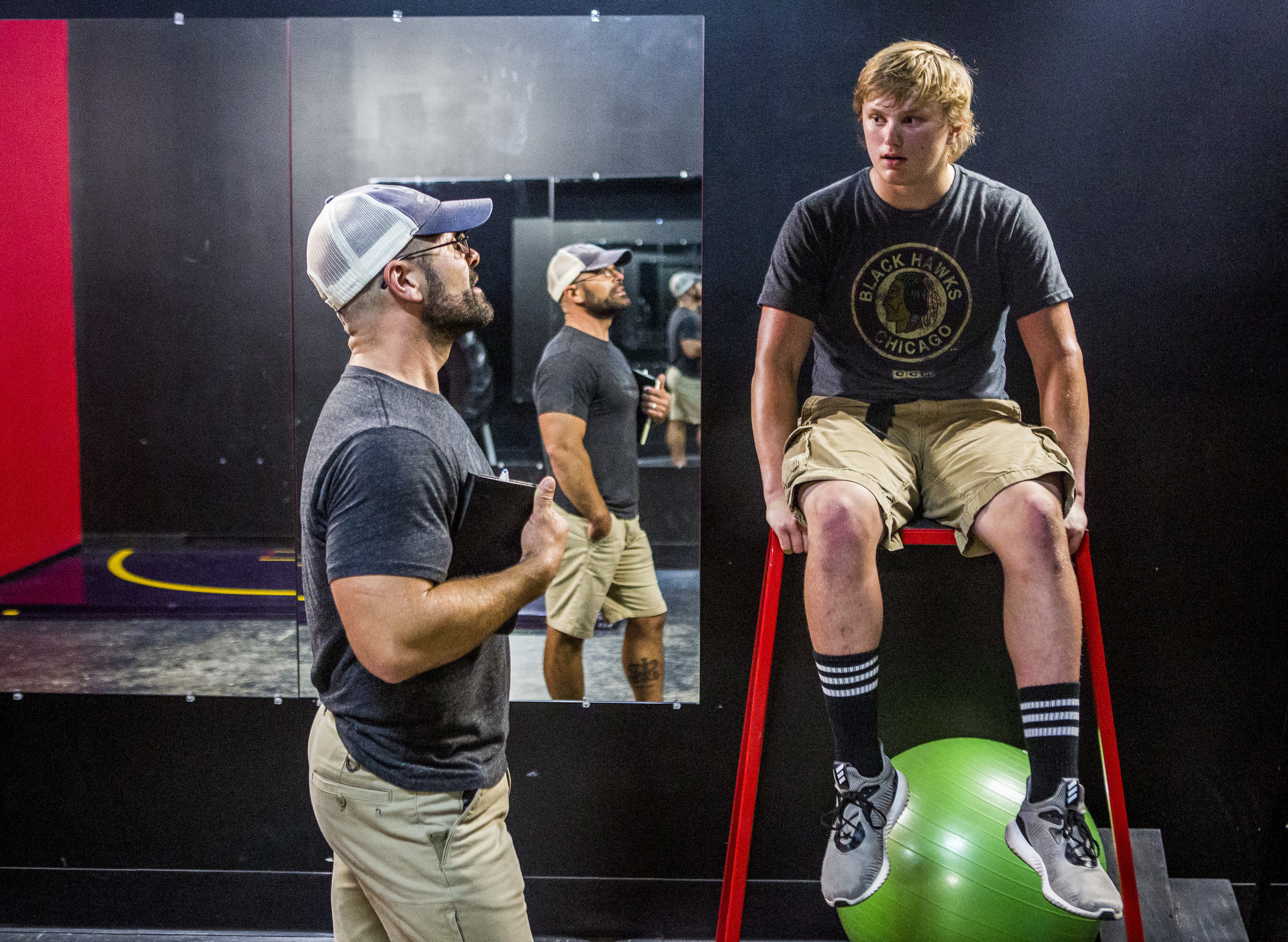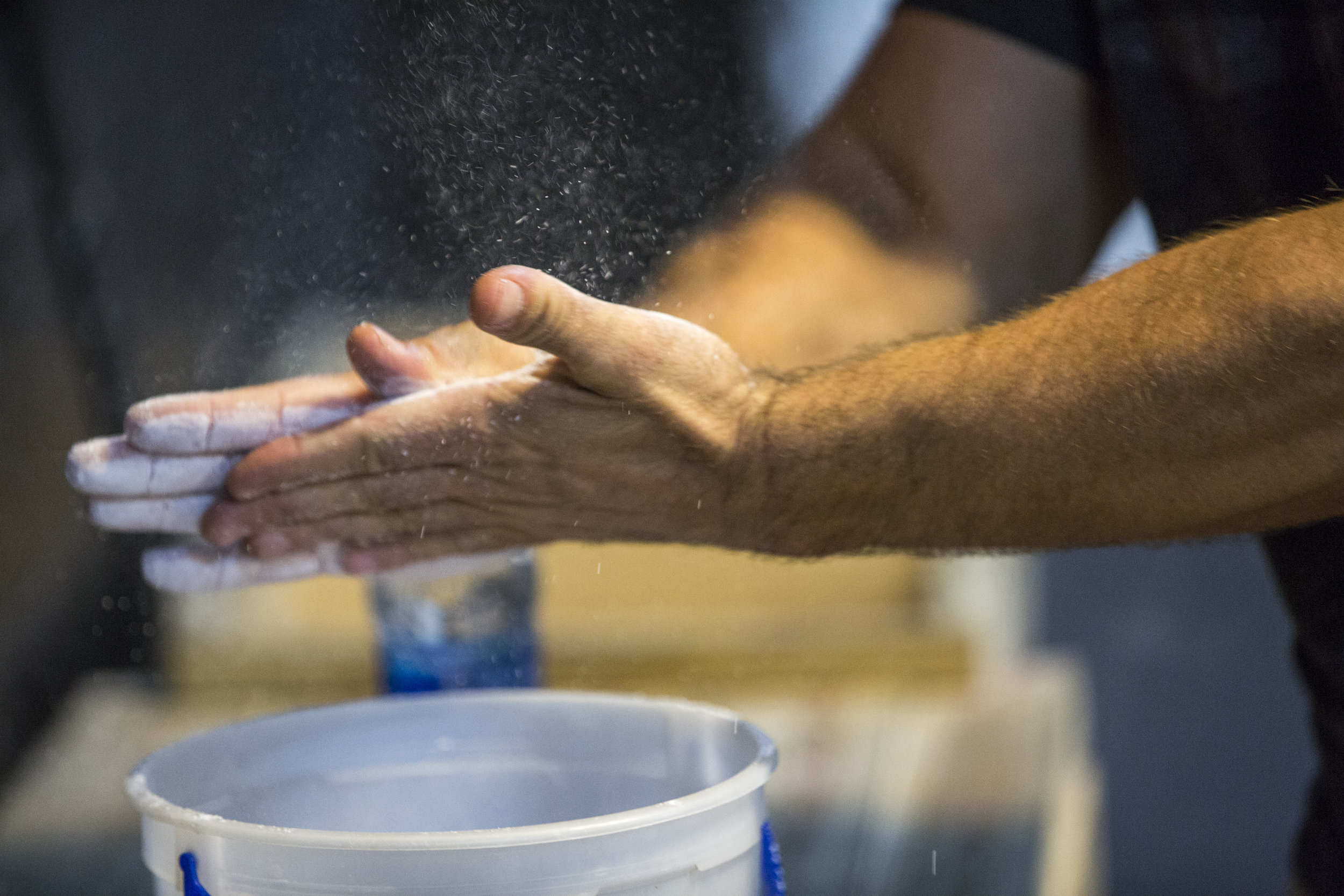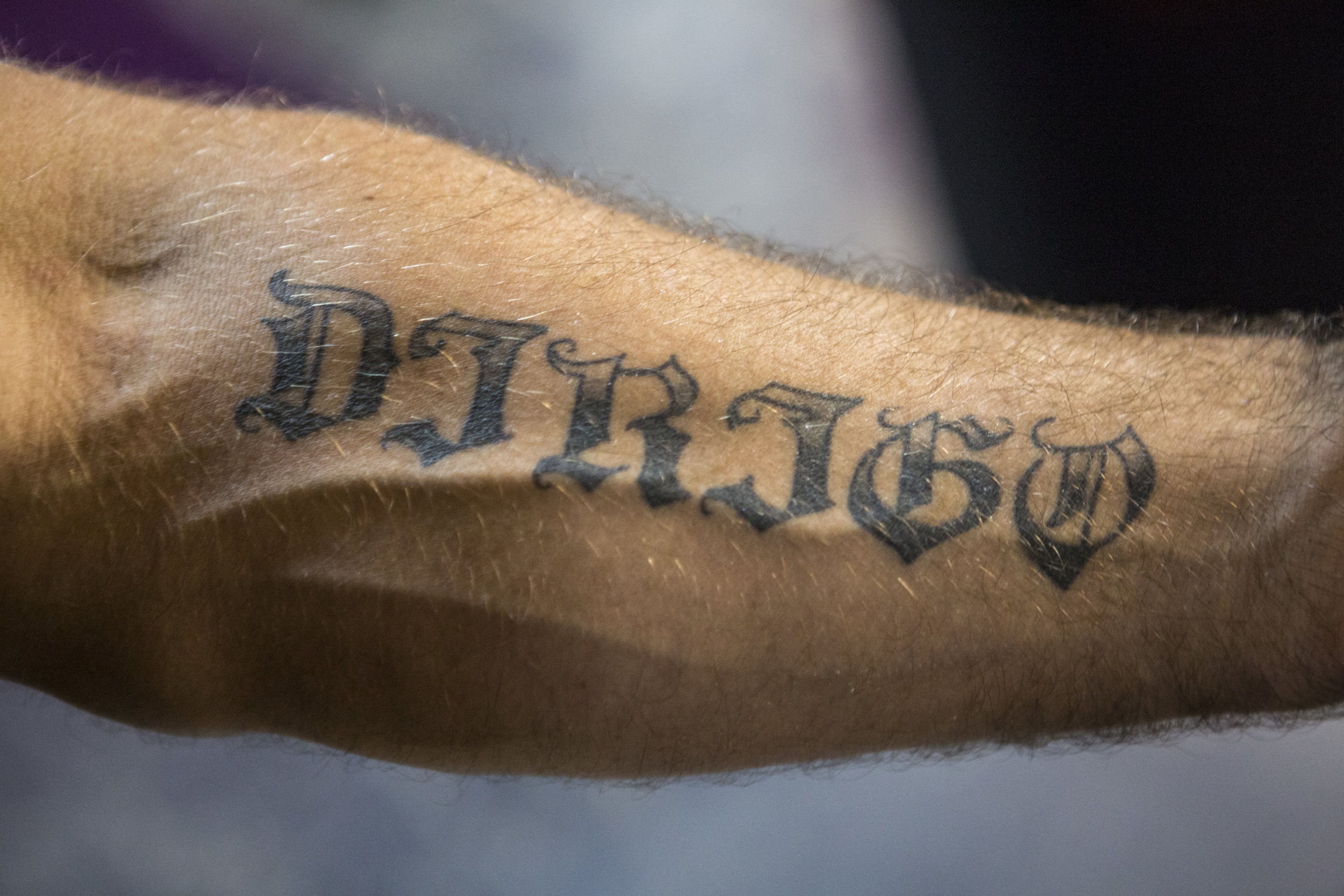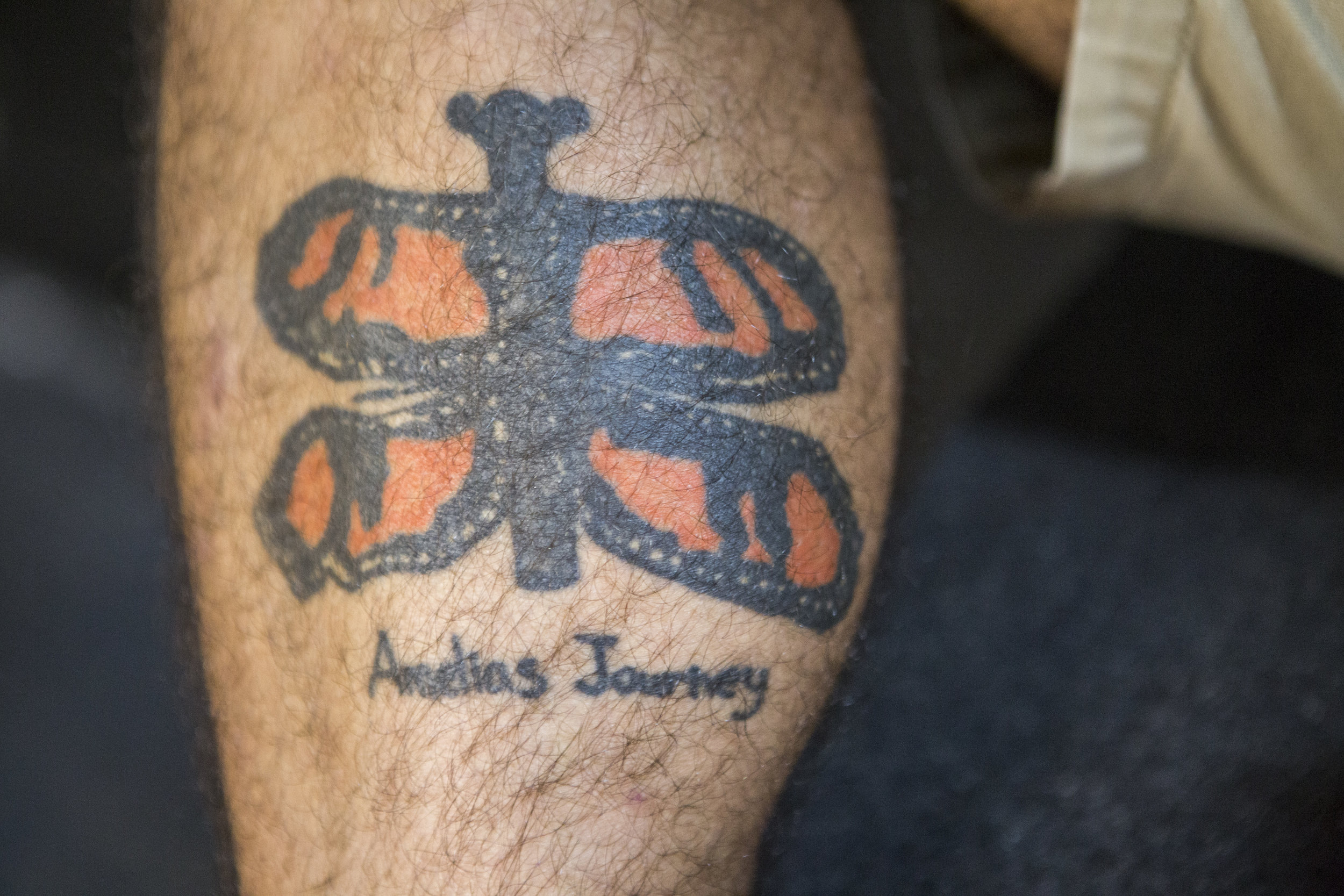Jamie
Jamie Betit works out at the Powerpit 24 gym on East State Street. This exercise required a particular balance to stand up and lay down while keeping his arm straight.
When you first meet Jamie Betit, you might assume that he's "that guy."
With a short and stocky build and a personal training business, you'd assume he's your average meathead who spends all of his time at the gym. But he's also a father of two daughters and a "feminist in training." He has a background in psychology and has spent some time pondering the concept of masculinity.
"You can lift weights and do those 'manly things' and still be in touch with what being a man actually means," Betit said.
In some ways, gym culture is the epitome of "what it means to be a man." Characteristics of strength and aggression have always been promoted in males, and the gym is a breeding ground for machoness and aggression. But according to Betit and his readings of Carl Jung, this type of aggression has roots that we don't often examine.
"When you're talking about the human spirit, especially the male spirit, it's very complex. It can't just be black and white," Betit said. "Basically, his position on male aggression stems from the fact that we have denied our feminine selves because society has said, 'this is how women act, and this is how men act.' Whereas it's impossible for us not to have feminine characteristics, and vice versa with women having male characteristics."
Betit is no stranger to aggression. His past was filled with it. He had a complicated relationship with his father before he passed away, and even after that Jamie still thinks about how he influenced him.
"Even in his death, I'm like, 'he wasn't a very good person,'" Betit said. "I admired him and I admired him for the wrong reasons. I basically admired him for being a bully and took some of those behaviors into my own life."
This manifested in drugs and violence in his late teens and early 20s. That started to go away when he had his first daughter.
"The moment Amelia was born, something switched. That aggression went away," Betit said. "I know that it's there, but it would be so hard for it to come up."
"Dirigo" means "I lead" and is on the state seal of Maine, where Jamie is originally from. Amelia's Journey is a reference to the journey he went through when his daughter had cancer. The butterfly is a picture she drew.
Jamie Betit lifts as he finishes his workout at Powerpit 24.
Then his marriage came to an end, and Betit moved to Athens with his ex-wife to be closer to his daughter. That's when he discovered drinking.
"For about two years, I was basically just drunk. I caused a lot of damage to myself and my relationships," Betit said. "It was one night, and I was just depressed. It was Christmas. I was alone and I'm just drunk. That was the first time in my life where I thought, 'I could just walk into the Hocking River right now.' Just slip into the ice, and no one would know, just be done."
The next day, a friend reached out to him and expressed her concern. Soon after, he "accidentally" met his current partner, Meredith. In some ways, things lined up and forced Jamie to take a new look at the world.
"I considered myself a fairly enlightened male, but as I started to read and then critically look at myself and I met Meredith, who very much is a feminist," Betit said. "It forced me to look at the world differently and that hasn't stopped for the last four years."
Between his personal training business, a masculinity discussion group with high schoolers that meets somewhat regularly, community involvement and fatherhood, Jamie is plenty busy. He and Meredith are starting a farm called the Chrysalis Farm for people in recovery. Through it all, he just aims to help others while gaining perspective and bettering himself.
"I'm fascinated with what happens to adults. Why do we lose that [young energy]?" Jamie asked. "I've chosen not to, so I'm viewed as sort of a non-traditional adult. We can't stop playing in life."







